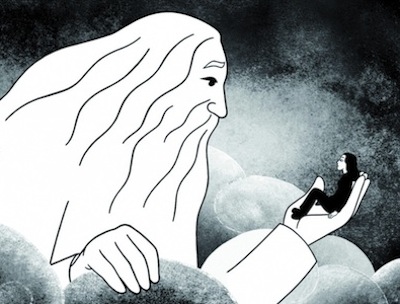Political cartoons flourishing
Dictators do not like to be ridiculed. They fear bold political cartoonists. Ousted Tunisian President Zeine el-Abidin Ben Ali made sure that the few artworks of political cartoonists who dared to criticise his regime would not reach the masses. He did what any tyrant would do: he censored them.
For more than four years Seif Eddin Nechi, a young Tunisian cartoonist, has been using social media as a platform to mock and criticise various aspects of the Tunisian society and political landscape. It did not take long before the regime’s net censorship machine blocked access to his cartoons.
Nechi said: “During the Ben Ali era I used to criticise everything, but in a roundabout way to get around censorship. Once I started talking about internet censorship through my cartoons, I was censored”.
He added: “After 14 January 2011 [when the Tunisian revolution began], criticising national and political affairs has become a central theme in my cartoons, with a more direct tone”.
With the uprising and the fall of the Ben Ali regime, many of the red lines which once prohibited artists from revealing their talents were scrapped.
“When I was very young, I used to draw everything and anything (especially my professors), and this earned me several punishments! Due to the system, my interest in caricature art had gradually faded away, and I could only share my drawings with my closest friends,” says Adnen Akremi (alias Adenov).
But now, Adenov can make use of his sense of humour, his pencils and his character Le Rasta, who is always smoking a joint, to ridicule and criticise.
Adenov explained: “It is through him [Le Rasta] that I express myself. He is Zen-like and out of touch and this somehow helps him to hit where it hurts. Through him I try to criticise the Tunisian’s situation in a funny way (well not always funny). When my messages are similar to the majority’s, it is good, but I’m not seeking to be the spokesperson of a particular group or a political party”.
In one drawing, Mustapha Ben Jaafar, Tunisia’s constituent assembly President, is depicted as extremely angry, asking Le Rasta about the efficiency of joints: “Is your thing efficient?” he asks. Le Rasta answers:” I can guarantee that it is 100 per cent efficient. Take one before each assembly session”.
In another cartoon, Le Rasta sarcastically comments on the increase in gas prices and the trend of self-immolations: “Is this within the framework of fighting self immolation suicides?”
Like Adenov, Nechi also created his own character, Bakounawar. “Bakounawar almost always ridicules reality, laughs at everything, he rarely gets angry,” Nechi told Index. “I created him to express myself and to try to say what is on my mind in a quasi-ludic manner, while remaining serious at the same time. Bakounawar has adopted a more popular discourse (and not a populist one) to be more than ever by the side of average and poor Tunisians. Bakounawar chose Tunisian dialect as language, and popular humour. I’m aware that my caricatures are still far from those I want to reach because the platform that I chose (the web) is not accessible to everyone,” he explained.
Via Bakounawar, Nechi has expressed his support to Al-Oula, a weekly newspaper whose director spent seven days on hunger strike protesting at government policies of state advertisements distribution among newspaper. “It [Al-Oula] is not a newspaper worth five cents”, says Bakounawar in one caricature.
But why did these two young artists chose the art of caricature? An art which cost Naji al-Ali’s life, and almost cost Syrian political cartoonist and Index Award winner Ali Fezrat his fingers.
“The message of a caricature is more direct than any other drawing genres”, answered Adenov.
“It is the most ludicrous tool capable of popularising complex situations. Caricatures allow us to laugh at our own flaws…” replied Nechi.
“This art has a primordial role in the construction of the future of a freer Tunisia”, said Amine Lamine, founder of Graphik Island, a platform which seeks to promote the artworks of Tunisian artists at both national and international levels. “Popularising art and culture to make them more accessible, so as many people as possible have interest in them and take part in the building of a better Tunisia”, he added.
The booming of caricature art was crowned by the publishing of Koumik (Tunisian for “Cartoon”), a collective book of comics which brought together 14 rising Tunisian caricaturists. The first issue was published in October 2011, and other issues are expected and anticipated.




